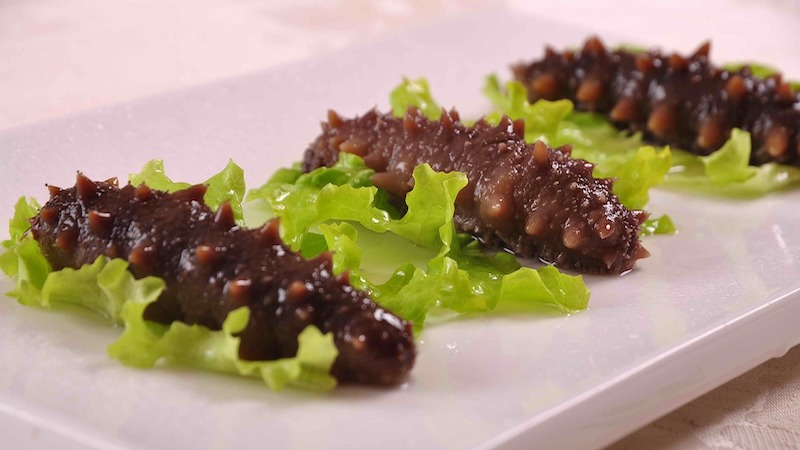
After surveying food market retailers in three New York City Chinatown districts, Cornell University researchers have found genetic evidence that some endangered species of sea cucumbers – considered a pricey but nutritious dried delicacy – are being sold to consumers.
The researchers collected 103 samples of dried sea cucumbers from retail food shops. By using mitochondrial DNA testing, they successfully identified 74 examples of sea cucumbers. Eight were classified as brown sea cucumbers– which are threatened and found on the International Union for the Conservation of Nature (IUCN) Red List due to overharvesting.
“We were able to genetically identify that the endangered species of brown sea cucumbers – around 10% of the sampled retail market – was being sold,” said lead author Jesse Rodenbiker, a former postdoctoral researcher at Cornell, and now an assistant teaching professor;in geography at Rutgers University. “It suggests that the kind of level at which sea cucumbers are available on the market may pose a threat for biodiversity loss.”
The research is published in the journal Sustainability.
Rodenbiker purchased dried sea cucumbers, usually labeled by originating geographic region – Japan, Mexico and South America from merchants in Chinese neighborhoods in Manhattan, Brooklyn and Queens. In interviews with student researchers, the retailers acknowledged limited understanding of where the sea cucumbers originated. During the survey period, the price for sea cucumber was between $169 and $229 per pound.
Nina Overgaard Therkildsen, co-author of the report, recognized that even brown sea cucumbers can be harvested legally in certain parts of the world, but there are no genetic tools yet to trace species origination and see if they are from those legal areas. “To conduct any enforcement at merchant food shops, we need tools that can assign a specimen back to a region from where they are protected and we are currently working on developing such tools,” she said.
Rodenbiker indicated a need for more robust point-of-origination training for the retailers, improved labeling in the markets and public outreach to advance the concept of One Health – an idea that humans, animals and the environment are all connected – in urban seafood markets.
